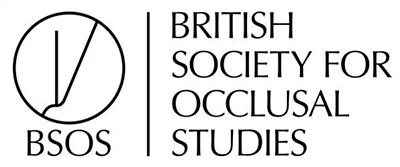For Patients
What is Occlusion?
Occlusion is an often overlooked root of many painful problems.
Jaw ache? Facial pains? Headache?
These problems are often related to the way that our teeth meet and slide against each other.
The way our teeth touch and glide against each other should be like a bespoke suit made so that it fit its owner. Unfortunately, too often it’s more like the owner having to fit the suit.
Our teeth always have the final say on where our jaws close and a lot of patients have small errors in their bite which make them put their teeth together in a position of ‘best fit’ rather than the right position for the jaws and muscles.
Is your jaw taking the strain?
These tiny errors or interferences have precisely the same effect as a nail protruding from a shoe. You change your walking pattern to avoid the nail, often producing a limp. Instead of limping, patients’ jaw muscles are left to take up the strain (of keeping their teeth in a comfortable position) and it is usually in these muscles that pain begins simply because the muscles can never relax.
We have lots of sets of muscles working together in the face, head and neck. Some muscles close the jaw, others open it, move it back or forwards and side to side. Our neck, back and shoulder muscles also contribute as bracing muscles which allows our jaws to move smoothly and efficiently.
Remember: When muscles are overused or get tired they ache.
A combination of aches
If a patient’s teeth don’t fit and slide together in harmony with the muscles, one or more of these muscle groups may begin to suffer from fatigue. You could be aware of headaches, face ache, jaw ache, eye pain, neck and shoulder pain – or a combination.
Stress just makes things worse
 Stress is known to make matters worse. Research shows that people who have recently changed job, had a death in the family, moved house, divorced or been put into a job that they cannot cope with are more likely to suffer from TMD (temporo-mandibular disorders).
Stress is known to make matters worse. Research shows that people who have recently changed job, had a death in the family, moved house, divorced or been put into a job that they cannot cope with are more likely to suffer from TMD (temporo-mandibular disorders).
We also know that many people can cope with some bite errors without getting symptoms at all. These people are living within their own limits without problems. But adding a certain amount of stress to your life, damaging any of the supporting muscles as in a car accident or adding new errors such as a dental crown which is high on the bite can tip the balance from having no problems at all to having lots of problems.
Ever noticed yourself clenching your teeth when you’re stressed?
You have no idea!
Sometimes it’s your partner who knows that something’s wrong. Many spouses tell us they can hear their partner grinding their teeth all night long. The patient may be aware that they wake up in the morning still feeling tired.
You may not be grinding, you may be clenching instead. What is going on here is that even when we are asleep our brain is trying to position our jaw into a comfortable position and keep the airway open. The problem may be that this comfortable position cannot be maintained – so the jaws squeeze against each other in a never ending search for a good night’s sleep.
Help is just around the corner
BSOS members all have lots of experience in dealing with these problems. We can provide diagnosis, advice and support as well as treatment with a range of bite appliances, tooth adjustments (equilibration) and advanced restorative dentistry to re-build worn, damaged and misaligned bites.
The British Society for Occlusal Studies ‘headache and facial pain’ website contains very useful information and contact points across the UK for patients who suffer from any of these problems:
- Headaches – The Cycle of Despair
- Pain behind the eyes
- Pain from the temples or the neck
- Face pain maybe after a car accident
- Tooth clenching or grinding (bruxing) at night
- Shoulder pain
- Painful or clicking jaw joints or ears
- Jaw ache and face ache
- Fillings which keep breaking
- Crowns which keep falling out
We believe every patient is different.
